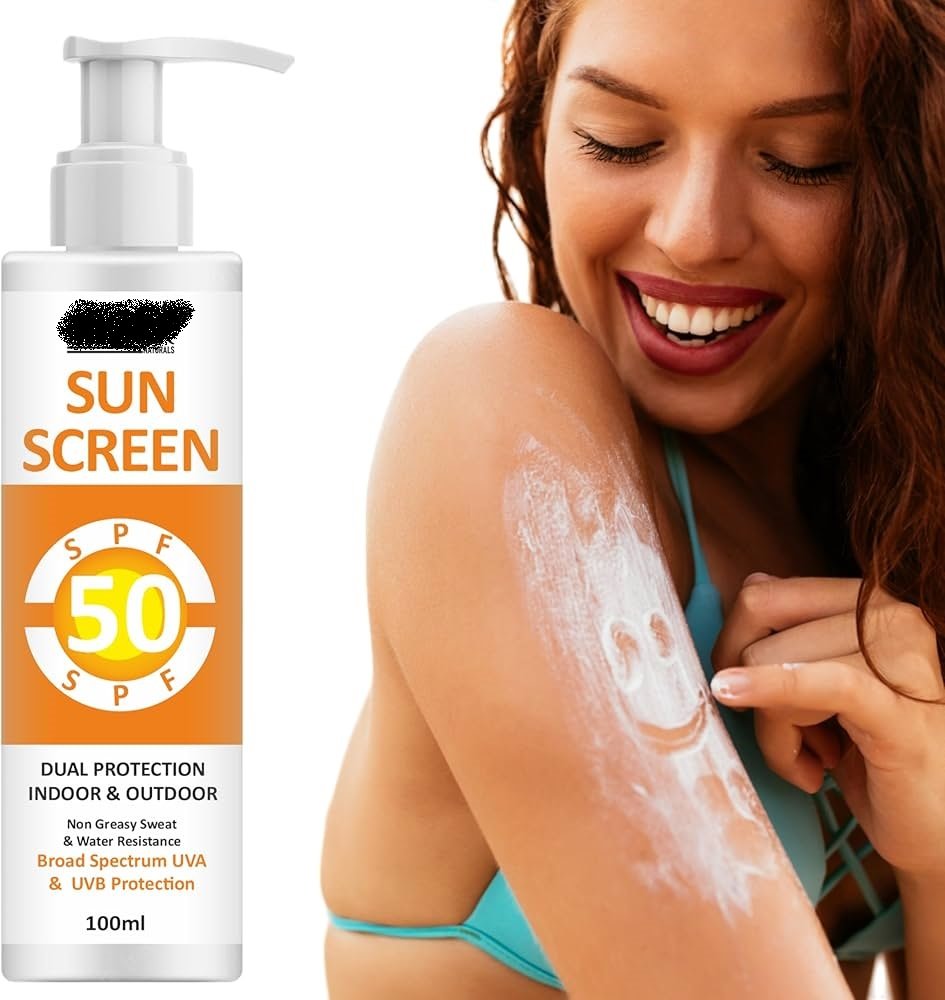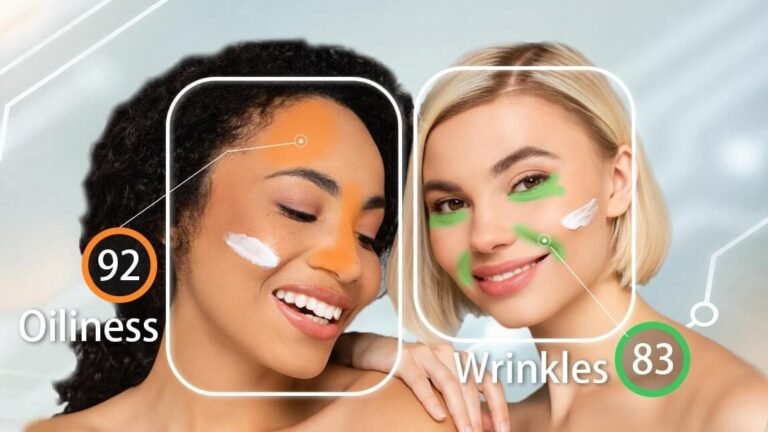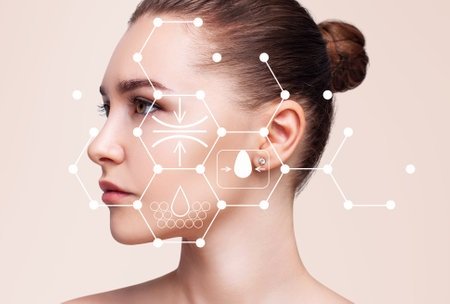Amazing World’s top-rated skincare products used

Here are some top-rated skincare products for various types of skin protection:
- Sunscreen (UV Protection)
EltaMD UV Clear Broad-Spectrum SPF 46: A lightweight, oil-free sunscreen for sensitive or acne-prone skin.
La Roche-Posay Anthelios Melt-in Milk Sunscreen SPF 100: Offers high SPF for extreme sun protection.
Neutrogena Hydro Boost Water Gel Lotion SPF 50: Hydrating and non-greasy sunscreen, perfect for daily wear.- Moisturizers with SPF
CeraVe AM Facial Moisturizing Lotion SPF 30: Provides hydration and SPF in one, ideal for daily wear.
Olay Regenerist Whip Face Moisturizer SPF 25: A lightweight moisturizer with anti-aging benefits and sun protection.- Antioxidant Protection (against pollution and environmental stressors)
SkinCeuticals C E Ferulic: A potent antioxidant serum that protects skin from free radicals caused by pollution and UV exposure.
Drunk Elephant C-Firma Day Serum: Packed with vitamin C, it helps brighten and protect against environmental damage.- Blue Light Protection (from digital screens)
Supergoop! Unseen Sunscreen SPF 40: A lightweight sunscreen that protects against blue light.
Murad City Skin Age Defense Broad Spectrum SPF 50: skincare products Protect against UVA, UVB, blue light, and pollution.- Hydration Protection (for dry climates)
Clinique Moisture Surge 72-Hour Auto-Replenishing Hydrator: Locks in moisture and creates a barrier to keep skin hydrated.
Neutrogena Hydro Boost Water Gel: Provides intense hydration with hyaluronic acid, ideal for dehydrated skin.- Anti-Pollution Masks
Origins Clear Improvement Active Charcoal Mask: Draws out pollutants and clears the skin of impurities.
Tata Harper Purifying Mask: Detoxifying mask to combat environmental damage and pollution.
Dermatologists and skincare professionals often recommend these products for their efficacy and protection. Protecting your skin from different diseases involves a combination of good hygiene, protective measures, and adopting healthy skincare habits.- Here are steps you can take to guard against various skin diseases:
- Protect from UV Damage (Sunburn, Skin Cancer)
Use Sunscreen Daily: Apply a broad-spectrum sunscreen (SPF 30 or higher) to exposed skin every day, even on cloudy days. Reapply every two hours when outdoors.
Wear Protective Clothing: Wear hats, long sleeves, and sunglasses to minimize direct sun exposure.
Seek Shade: Avoid staying out in direct sunlight, especially between 10 a.m. and 4 p.m. when UV rays are strongest.- Maintain Good Hygiene (Prevent Bacterial/Fungal Infections)
Wash Regularly: Bathe daily with mild soap and water to remove sweat, dirt, and bacteria from your skin.
Dry Skin Properly: Make sure to dry the skin thoroughly after washing, especially in areas prone to moisture like the armpits and groin, to prevent fungal infections in skincare products.- Wear Breathable Fabrics: Choose cotton or moisture-wicking materials to reduce sweat accumulation, which can lead to fungal and bacterial infections.
- Avoid Harsh Chemicals (Prevent Contact Dermatitis)
Use Gentle Products: skincare products avoid skincare products with harsh chemicals, fragrances, or preservatives that can irritate the skin and cause allergic reactions.- Test New Products: Before using a new product, do a patch test on a small area of skin to ensure it doesn’t cause a reaction.
- Hydration and Moisturization (Prevent Eczema, Dry Skin)
Moisturize Daily: Apply a good-quality moisturizer after bathing to lock in moisture, especially during cold or dry seasons when the skin tends to dry out.An emollient, often known as a moisturizer, is a cosmetic preparation that lubricates, protects, and moisturizes the skin. The sebum that healthy skin produces typically carries out these tasks. The Latin verb mollire, which means to soften, is where the term “emollient” originates.- Use Humidifiers: Keep indoor air humid to prevent dry skin, especially in air-conditioned or heated environments.
Water continually evaporates from the skin’s deeper layers of the human body; this process is called transepidermal water loss. Human skin protects itself from drying out and becoming brittle and inflexible by controlling its water content, which allows it to naturally retain a dry, easily shed surface as a barrier against viruses, debris, or harm. The lipid bilayer that exists between dead skin cells determines the skin’s capacity to hold onto moisture. Moisturizers alter the rate at which water is lost, and their active components usually fall into one of two categories.
- Avoid Skin Irritants (Prevent Rashes and allergies)
- Choose Non-Irritating Fabrics: Wear loose-fitting, non-synthetic clothing to avoid skin irritation and skincare products.
Avoid Allergens: Be mindful of substances that may cause allergic skin reactions, such as certain foods, plants (like poison ivy), or chemicals in cosmetics.- Maintain a Healthy Diet (Prevent Acne and rosacea)
Eat a Balanced Diet: A diet rich in antioxidants, vitamins, and minerals (like vitamins A, C, and E) supports healthy skin. Omega-3 fatty acids, found in fish and flaxseeds, can reduce inflammation.
Stay Hydrated: Drink plenty of water to keep your skin hydrated and support overall skin health.
Avoid Sugary/Fatty Foods: High-sugar and processed foods can contribute to acne and other inflammatory skin conditions.- Avoid Smoking and Excessive Alcohol (Prevent Premature Aging, Skin Conditions)
Quit Smoking: Smoking accelerates skin aging and increases the risk of skin cancer.
Limit Alcohol Consumption: Alcohol dehydrates the skin and can exacerbate conditions like rosacea and eczema.- Regular Skin Check-ups (Prevent Skin Cancer)
Self-Examine Your Skin: Look for unusual moles, spots, or skin changes. Early detection of skin cancer can make a significant difference.
Visit a Dermatologist: Schedule annual skin checks with a dermatologist, especially if you have a family history of skin diseases or frequently spend time in the sun.- Manage Stress (Prevent Psoriasis and acne)
Reduce Stress: skincare products High-stress levels can exacerbate skin conditions like psoriasis, eczema, and acne. Incorporate relaxation techniques like yoga, meditation, and exercise into your daily routine.- Vaccinations and Treatments (Prevent Skin Infections)
Vaccines: Ensure you are vaccinated against viruses that can affect the skin, such as HPV (which can cause warts) and chickenpox.
Treat Skin Infections Early: If you notice signs of infection (like redness, swelling, or pus), seek medical treatment early to prevent it from worsening.
By following these practices, you can significantly reduce the risk of developing various skin diseases and keep your skin healthy.





